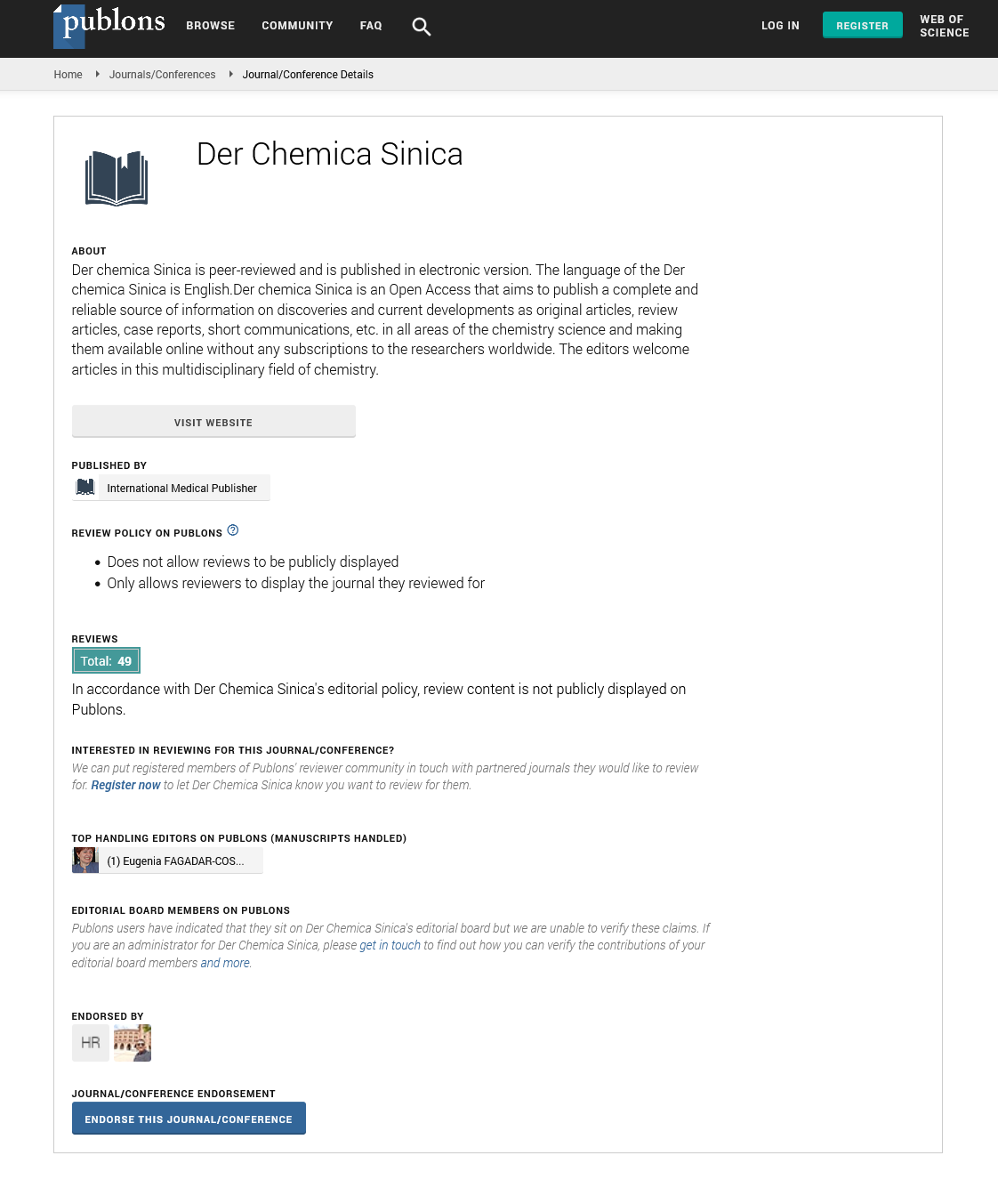ISSN : 0976-8505
Der Chemica Sinica
Abstract
Pesticides as Environmental Pollutants: A review of health and environmental impacts pose by continuous use of cyclodienes in developing countries
Pesticides have been very effective in controlling disease-causing organisms, insects, weeds, and other pests. Characterised by a high toxicity to target species, pesticides may also be toxic, to a various degree, to non-target species, including human beings. Of major concern around the world are the organochlorine (such as cyclodienes) pesticides due to their severe toxicity, persistence and bioaccumulation. Thus their production, usage and disposal have been controlled or banned in most developed countries. However, they are still used in many developing countries. This paper examined why farmers and general public in developing countries continue to use these toxic organochlorine pesticides despite the resulting adverse effects associated with such practice. This research discovered that lack of strict regulations, poverty, ignorance, political instability and lack of economic and political commitments are among the factors responsible for this trend. The research further recommends that governments in the affected countries should adopt strict regulatory measures, educate farmers and the general public and restrict the availability of toxic cyclodienes
Author(s): Abubakar Abdulhamid
Abstract | PDF
Share This Article
Google Scholar citation report
Citations : 6019
Der Chemica Sinica received 6019 citations as per Google Scholar report
Der Chemica Sinica peer review process verified at publons
Abstracted/Indexed in
- Google Scholar
- Open J Gate
- Genamics JournalSeek
- China National Knowledge Infrastructure (CNKI)
- Directory of Research Journal Indexing (DRJI)
- Publons
- MIAR
- International Committee of Medical Journal Editors (ICMJE)
- Serials Union Catalogue (SUNCAT)
- Geneva Foundation for Medical Education and Research
- Secret Search Engine Labs
- Euro Pub
- CAS (Chemical Abstracting Services)
- University of Barcelona
Open Access Journals
- Aquaculture & Veterinary Science
- Chemistry & Chemical Sciences
- Clinical Sciences
- Engineering
- General Science
- Genetics & Molecular Biology
- Health Care & Nursing
- Immunology & Microbiology
- Materials Science
- Mathematics & Physics
- Medical Sciences
- Neurology & Psychiatry
- Oncology & Cancer Science
- Pharmaceutical Sciences
